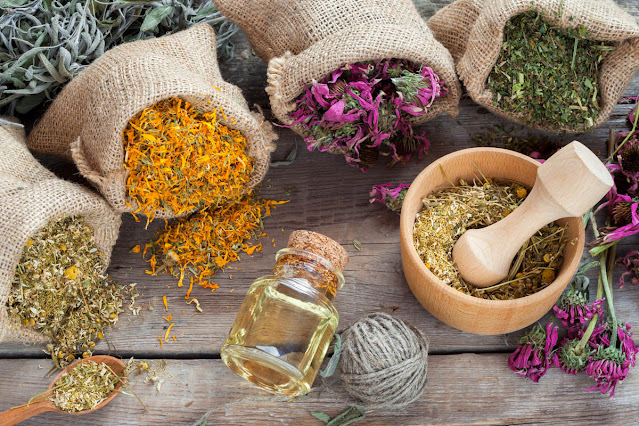Unani Medicine for Blood Purification: Ancient Wisdom for Modern Healing
Introduction
Unani medicine, a traditional healing system that originated in ancient Greece and was further enriched by scholars in the Arab world, is based on the principles of balancing the four humors (blood, phlegm, yellow bile, and black bile) within the body. In Unani medicine, the concept of blood purification is crucial for maintaining overall health and preventing various diseases. According to this system, an imbalance in the blood can lead to the accumulation of toxins and impurities, which in turn can disrupt the harmony of the body. To address this, Unani medicine offers a wide range of natural remedies, including herbs, minerals, and animal products, that are believed to promote blood purification and restore the body's equilibrium.
In this comprehensive guide, we will explore the principles of Unani medicine related to blood purification and examine some of the key Unani herbs and remedies used for this purpose. We will delve into the historical usage, medicinal properties, and scientific evidence behind these natural remedies to better understand their potential benefits for kharish ka ilaj.
Principles of Unani Blood Purification
- Balance of the Four Humors: Unani medicine revolves around the belief that health is achieved when the four humors in the body are in balance. Blood, one of the four humors, plays a vital role in transporting nutrients and oxygen to different parts of the body. When the blood is pure and balanced, it enhances overall health, while an imbalance can lead to various ailments.
- Detoxification and Removal of Impurities: Unani medicine places great emphasis on detoxifying the body and eliminating impurities from the blood. Accumulated toxins are considered a significant cause of diseases, and blood purification is seen as a way to remove these harmful substances.
- Supporting Vital Organs: Unani medicine focuses on strengthening vital organs responsible for detoxification, such as the liver and kidneys. By supporting these organs, the body's natural ability to purify the blood is enhanced.
Key Unani Herbs for Blood Purification
1. Neem (Azadirachta indica)
Neem is an iconic herb in Unani medicine, revered for its blood-cleansing properties. It contains bioactive compounds like nimbidin, nimbin, and quercetin, which exhibit antimicrobial and antioxidant effects. Neem supports liver function, thereby aiding in the detoxification of the blood. It also helps maintain a healthy immune system, which is vital for eliminating toxins from the bloodstream.
2. Manjistha (Rubia cordifolia)
Manjistha, commonly known as Indian madder, is another prominent Unani herb used for blood purification. Its roots are rich in quinones, iridoids, and flavonoids, which contribute to its antioxidant and anti-inflammatory properties. Manjistha helps remove toxins from the blood and supports healthy circulation, making it an excellent choice for promoting overall well-being.
3. Gul-e-Surkh (Rosa damascena)
Gul-e-Surkh, or red rose petals, are valued in Unani medicine for their blood-purifying and cooling properties. They are believed to help balance the humors, particularly in conditions associated with excess heat in the body. Gul-e-Surkh is often used in the form of a decoction or infusion.
4. Turbud (Operculina turpethum)
Turbud, also known as Indian jalap, is a potent Unani herb used for blood purification. It has purgative properties, stimulating bowel movements and promoting detoxification. Turbud is believed to clear excess phlegm and bile from the system, thereby restoring balance.
5. Senna leaves (Cassia angustifolia)
Senna leaves have been used in Unani medicine for their laxative effects, aiding in the elimination of waste products from the body. By supporting healthy bowel movements, senna leaves contribute to blood purification.
- Revand (Rheum emodi)
Revand, or Indian rhubarb, is an essential Unani remedy for blood purification. It contains anthraquinones that act as natural laxatives, helping to remove toxins and waste products from the body. Revand is particularly valued for addressing skin disorders associated with blood kharish treatment.
7. Gule Surkh (Rosa damascena)
Gule Surkh, the red rose petals, are an integral part of Unani medicine. They are believed to have blood-purifying properties, promoting healthy circulation and supporting overall well-being.
8. Ushba (Hepatica nobilis)
Ushba, commonly known as liverwort, is used in Unani medicine for blood purification and liver support. It is believed to have diuretic properties, aiding in the elimination of toxins through urine.
9. Afsanteen (Artemisia absinthium)
Afsanteen, or wormwood, is another bitter herb used in Unani medicine for blood purification. It is believed to promote the elimination of toxins from the bloodstream and improve digestion. Afsanteen is also known for its antimicrobial effects.
10. Tukhme Kasni (Cichorium intybus seeds)
Tukhme Kasni, the seeds of Cichorium intybus, are commonly used in Unani medicine for blood purification. The seeds are believed to possess diuretic properties, supporting kidney function and aiding in detoxification.
Scientific Evidence
While Unani medicine has a rich history of use, it is essential to acknowledge that scientific evidence supporting the effectiveness of specific blood purifier herbs may be limited. Many of these remedies have not undergone extensive clinical trials to validate their efficacy. However, some individual herbs used in Unani medicine, such as neem and manjistha, have been the subject of scientific research, revealing potential health benefits. These herbs are known for their antioxidant and anti-inflammatory properties, which indirectly support the concept of blood purification by reducing oxidative stress and inflammation associated with toxic build-up in the body.
Conclusion
Unani medicine offers valuable insights and wisdom when it comes to blood purification. The traditional healing system emphasizes the importance of detoxifying the body to maintain overall health and well-being. While some blood purifier herbs have been studied for their medicinal properties, more research is needed to fully understand their mechanisms of action and potential benefits.
As with any traditional or alternative medicine, it is crucial to consult with a qualified healthcare professional before using Unani herbs for blood purification or any other health concerns. Unani medicine should be integrated into a holistic approach to health, which includes a balanced diet, regular exercise, stress management, and other lifestyle practices that contribute to overall wellness. By embracing the ancient wisdom of Unani medicine and combining it with modern scientific knowledge, we can unlock the potential of natural remedies for blood purification and skin kharish ka ilaj.




Comments
Post a Comment